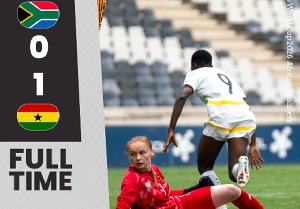The Finance Committee of Parliament is expected to make a recommendation for the adoption of a proposed Financial Sector Stability Act in its report on the collapse of seven banks, which will be submitted to the plenary for consideration and adoption when the House returns from recess.
Chairman of the committee, Dr. Mark Assibey-Yeboah, disclosed this to journalists at Parliament House during the final day of the Committee’s hearing on the seven collapsed banks.
He stated: “One suggestion that has come up is that there should be some Financial Sector Stability Act whereby there will be information-sharing by the four regulatory agencies on a constant basis; because this platform that we have – this holding structure – that is what pertains elsewhere; and most firms which have a banking wing would want to have an insurance wing, an asset management wing, pensions fund – there is nothing wrong with that.
“But in as much as you would want to co-exist that way, we will also tighten the regulations and the cooperation and sharing of information among them.”
Now that the Committee has ended its first hearing, it is going to analyse all the information it has gathered before putting together a comprehensive report.
Should the plenary adopt the report, the Executive – preferably the Ministry of Finance – will then have to submit a bill to that effect to parliament for consideration and adoption.
All the four regulatory agencies in the financial sector want an additional law to be passed by parliament to make it mandatory for them to share information among themselves on a constant basis.
They have therefore proposed a Financial Sector Stability Act for consideration and approval by the legislature – a law they believe will further strengthen their operations.
“This is one of the most productive engagements, because it brought to the fore the fact collaboration efforts between the regulatory agencies are more or less is non-existent. We have four regulatory arms in the financial services area, and they operate independently of each other. There is the National Pensions Regulatory Authority (NPRA); Security and Exchange Commission (SEC); National Insurance Commission (NIC); and the Bank of Ghana (BoG).
“So, as for the seven collapsed banks regulated by the Bank of Ghana, some belong to holding companies which have insurance wings, assets regulatory wings, pensions, trusts and the rest.
“As a matter of fact, we have even realised that we should have invited the Pensions Regulatory Authority (NPRA). We are even directing them to some of these reports now. We have pointed out to them infractions that have occurred in the insurance area, the asset management area, fund management … They didn’t know some of these, and so that is where we are going,” Dr. Assibey-Yeboah noted.
The B&FT understands that there already exists a memorandum of understanding (MoU) between the regulatory agencies that enables them to share information among themselves.
However, because the MoU is not binding, the sharing of information among these regulatory agencies has not been forthcoming.
The regulatory agencies are confident that it is only when they have a law backing the sharing of information that such an activity will be effective.
The four institutions – National Pensions Regulatory Authority (NPRA); Security and Exchange Commission (SEC); National Insurance Commission (NIC); and the Bank of Ghana (BoG) – made the proposal when they met the Finance Committee of Parliament during a three-day hearing to answer some questions relating to their supervisory roles in the midst of the banking crisis.
According to Dr. Assibey-Yeboah, the proposal is apt since there appears to be no collaboration between the four regulatory agencies – a situation that may have contributed immensely to the seven indigenous banks’ collapse: namelyUT Bank, Capital Bank, Sovereign Bank, Royal Bank, uniBank, Beige Bank and Construction Bank.
UT Bank and Capital Bank have been taken over by GCB, while the remaining five have been merged into one entity called Consolidated Bank Ghana.
Business News of Tuesday, 11 September 2018
Source: thebftonline.com
Financial sector stability act proposed
Entertainment












